Text
being mentally ill is so embarrasing how can you explain to a normal person that you had to psych yourself up for half an hour to like get off the floor
127K notes
·
View notes
Text
Me during the whole day: I want to do a total of 0 (zero) things
Me at night: I need to get my life together, I want to be fluent in 3 languages, practice different art styles, learn about the modern civilization and economy and politics and watch a bunch of movies and write and read a couple of books and do e v e r y t h i n g.
35K notes
·
View notes
Text
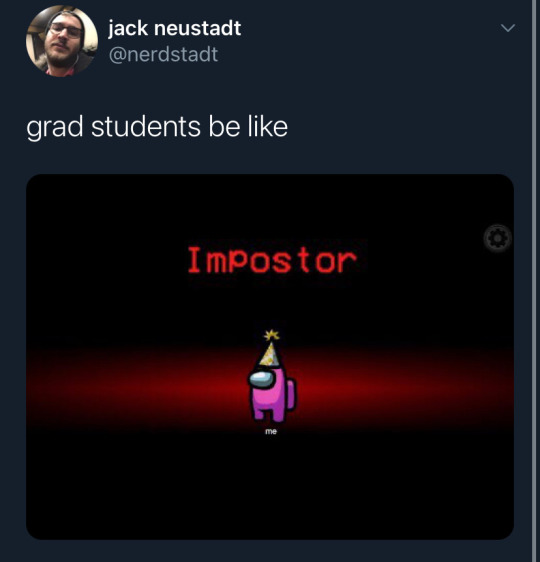
1K notes
·
View notes
Text
Starbucks funded the police in Atlanta so here’s their recipes


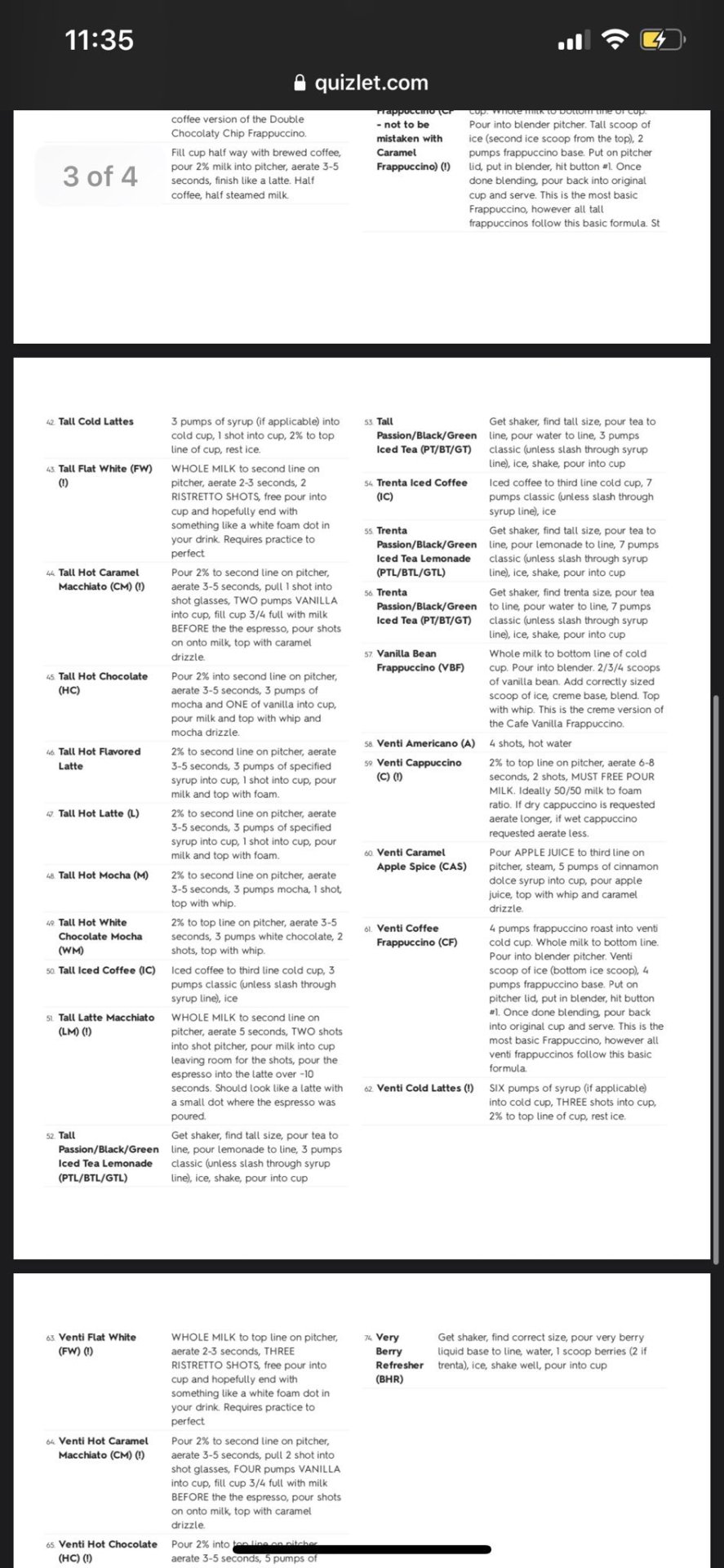

166K notes
·
View notes
Text
Study Guide to The Stanford Encyclopedia of Philosophy

I have been interested in self-studying philosophy for a long time, and I am now taking it up as my minor in college. I have compiled this systematic guide to philosophy for my own benefit, however, it may prove beneficial to others as well.
Obviously, I am talking about Western philosophy, and not Eastern philosophy, which is a subject all of its own (and a very interesting one at that).
The Stanford Encyclopedia of Philosophy is an excellent source of philosophical articles that are both thorough, and accessible. However, I have not been able to find any systematic index of articles from the SEP which make reading through it chronologically possible. Therefore, I have written an outline of important thinkers beginning with the pre-socratics, and I am linking them to respective entries in the SEP.
This guide is a work in progress, and currently has the major disadvantage of not categorizing various philosophers into specific schools of thought. I may try to work these in at a later time, but for now I am focusing on chronology rather than fitting them into categories. The SEP should do that by itself.
The Pre-Socratics
Thales of Miletus
Anaximenes
Heraclitus
Anaximander
Parmenides
Zeno of Elea
Empedocles
Democritus
Pythagoras
Diogenes
Classical Philosophy
(These three thinkers are extremely important, and intimately connected to one another)
Socrates
Plato
Aristotle
Ancient Non-Socratic Schools of Philosophy
Sophism
Protagoras
Gorgias
Skepticism
Pyrrho
Epicureanism
Epicurus
Hedonism
Aristippus of Cyrene
Democritus (although a pre-socratic, he is often associated with this school)
Stoicism
Zeno of Citium (NOT to be confused with Zeno of Elea, a pre-socratic)
Epictetus
Marcus Aurelius (although he came significantly later)
Neoplatonism
Plotinus
St. Augustine (although he came much later, he is a very important and influential figure)
Medieval Philosophy
Scholasticism
St. Anselm
St. Thomas Aquinas
Peter Abelard
Albertus Magnus (Albert the Great)
John Duns Scotus
William of Ockham
Renaissance Philosophers
Roger Bacon (Okay, technically, Bacon was a Franciscan Friar in the 14th century, so he doesn’t belong here. But he definitely doesn’t belong with the Scholastics, so he goes here.)
Erasmus
Machiavelli
Thomas More
Francis Bacon
Islamic Philosophers (no SEP links :( )
Avicenna
Averröes
Jewish Philosopher(s)
Maimonides
Early Modern Philosophy (it isn’t medieval, but it also isn’t modern)
Two competing schools of thought, and those who did not strictly belong to either school.
Rationalism
René Descartes
Baruch Spinoza
Gottfried Leibniz
Nicolas Malebranche
Empiricism
John Locke
Bishop George Berkeley
David Hume
Non-Aligned (Not strictly empiricist or rationalist)
Thomas Hobbes
Jean-Jacques Rousseau
Blaise Pascal
Voltaire
Adam Smith
Edmund Burke
Immanuel Kant (signaled the shift from early modern to 19th century philosophy)
19th Century Philosophy
German Idealism
Johann Fichte
Arthur Schopenhauer
Georg Hegel
Marxism
Karl Marx (of course he gets his own category)
British Empiricism
Jeremy Bentham
John Stuart Mill
American Philosophy
Ralph Waldo Emerson
Henry David Thoreau
C.S Peirce
William James
John Dewey
European Philosophers
Auguste Comte
Søren Kierkegaard
Nietzsche
20th Century Philosophy
Characterized once again by two large and competing traditions.
Analytical Philosophers
Gottlob Frege
Bertrand Russell
Alfred North Whitehead
A.J Ayer
Ludwig Wittgenstein
W.V.O Quine
G.E. Moore
Continental Philosophers
Edmund Husserl
Martin Heidegger
Jean-Paul Sartre
Michel Foucault
Jacques Derrida
2K notes
·
View notes
Photo

This started out as a Google Doc for personal use, but I might as well share it with you since the internet is awesome and chances are there are other lit freaks like me out there! + Masterposts are the best
Beginners (old but gold tbh)
Sparknotes
Cliffnotes
ThugNotes
CrashCourse
Novel Guide
Shmoop
Grade Saver (I’ve found some rare XVIII century plays explained here!)
English 101 (English lit)
English 102 (American lit)
Tips to Analyze, Write, Interpret literature (College level):
English 103: Analyzing and Interpreting Lit.
Literary Analysis Guide - Goshen College
Literary Analysis: Using Elements of Literature
HOW TO WRITE A LITERARY ANALYSIS ESSAY
How to Write an Analysis of Theme — Teaching College English
Analyzing and Interpreting Literature | CLEP
How I Plan and Write Literature Papers by notaperfectstudent
Very Useful (misc.)
CRITICAL THEORY: Introduction to Literature
Literary Theory Links
Voice of the Shuttle (great humanities research page)
Warwick English Page (bunch of links, exams, essays, etc…)
Consciousness, Literature and the Arts Archive: Articles and Essays
Online Lectures
Terry Eagleton: “The Death of Criticism?” - UC Berkeley Events
Modernism Undone: T.S. Eliot’s Literary Revolution
A Reader’s Guide to T.S. Eliot’s “Four Quartets” (Lecture by Thomas Howard, Professor Emeritus, Gordon College)
Arts One Open: on The Wasteland by T.S. Eliot (Lecture by Kevin McNeilly for the “Monster in the Mirror” theme)
Introduction to Literary Theory - Yale
Harold Bloom on Shakespeare - Yale
Harold Bloom on Walt Whitman
Noam Chomsky on Linguistics
Keio Linguistic Colloquium SYNTAX SESSION Professor Noam Chomsky (MIT)
Open Courses
ENGL 291: THE AMERICAN NOVEL SINCE 1945 - Yale
ENGL 220: MILTON - Yale
AMST 246: HEMINGWAY, FITZGERALD, FAULKNER - Yale
Fantasy and Science Fiction: The Human Mind, Our Modern World - U- of Michigan (took this, it’s great! Course starts October 2015)
MODERN POETRY - Yale
The Fiction of Relationship - Brown (no open sessions rn but I took this and it is also great, so stay tune for when the course re-opens)
Victorian Era
Literary Genre, Mode, and Style during the Victorian Era (so many sources, essays and papers!! <3)
Nostalgia and the Victorian Novel
Getting On C.19th Lit
Landscape
Tess and Wuthering Heights
Female Relationships
Foreign Spaces
Romanticism
The Romanticism Blog (posts concerning scholars and students, here you will find great ideas for essays!)
The Romantics: Nature (bbc doc)
The Romantics: Eternity (bbc doc)
The Romantics: Liberty (bbc doc)
Lord Byron (bbc doc)
Romantic Circles
Romantic Chronology http://www.english.ucsb.edu:591/rchrono/
The Voice of the Shuttle, Romanticism pages http://vos.ucsb.edu/ –> literature (in English)–> Romantics–> a wealth of links to many resources
The XVIII Century
Skin as Surface in Swift and Pope
Public Opinion in Swift and Gay
The Female Body in Swift and Pope
Bawdiness in Cleland and Sterne
Voyeurism in Cleland
Narrative and Progress in Tristram Shandy
Shakespeare
Reading Shakespeare’s Play
Introduction to Shakespeare’s life and works
Featured Essays and Book Excerpts on Shakespeare’s Plays
Shakespeare Mag: Education and resources
Introduction to Shakespeare (so many links!):
Humanist Grammar School
Comedy
Problems with Shakespeare’s Texts
Shakespearean Verse and Prose
Dramatic Plot Structure
Figurative Language and Rhetorical Devices
The Histories
Tragedy
Revenge Tragedy
Establishing the Text of Hamlet
The Romances
Blackfriars Theater and Audience Expectations
Hamlet performed by BATHS (for me this is a great representation tbh!)
Synopses of Shakespeare’s Plays
Shakespeare Resource Center
The Shakespeare Authorship Page
Internet Shakespeare Editions
Robert Teeter’s Shakespeare Links
Shakespeare’s Globe Theatre Virtual Tour
Interactive Globe Theatre
Shakespeare Timeline
The Folger Shakespeare Library
Shakespeare Illustrated (Emory University)
Steven Marx’s “Triangulating Shakespeare”
“But I have that within that passes show”: Hamlet’s Soliloquies as an Expression of Shakespeare’s Loss and Transformation (essay)
Medieval
Medieval English Studies A GUIDE TO MIDDLE ENGLISH
Translatio studii et imperii
Medieval Attitudes toward Vernacular Literature
Courtly Love
Medieval Allegory
The Alliterative Revival
The Three Medieval Estates
Arthurian literature
Arthurian Studies Links & Essays
Arthurian Resources (Thomas Green)
Arthurian Links (Thomas Green)
Labyrinth Arthurian Links
The Camelot Project (Medieval to modern texts and images)
King Arthur links (Medieval History site)
Britannia Arthurian Links
Holy Grail links (Mary Weidenhaft)
Women of the Arthurian Legend (Camelot Project–modern)
Arthuriana (International Arthurian Society journal)
Arthurnet (Listserve)
A scholarly discussion list for King Arthur
Arthuriana/Camelot Project Bibliographies
Princeton Charrette Project (Manuscript images of Chrétien de Troyes’s Lancelot romance)
Yale MS 229, Prose Lancelot (Illuminated manuscript images)
The Camelot Project Artists Menu (modern)
Poetry
Essay writing tips for poetry
Poetry Foundation: Lectures
Essays on Poetic Theory
British Poetry 1780-1910: a Hypertext Archive of Scholarly Editions
The American Poetry Full-Text Database
English Verse Drama: the Full-Text Database
The English Poetry Full-Text Database
Online Exams
Romantics Exam
Eighteenth Century Literature Final here
Medieval to Renaissance English Literature Examen (Warwick)
SHAKESPEARE: END-OF-SEMESTER EXAM “A MOST LAMENTABLE COMEDY”
17K notes
·
View notes
Photo
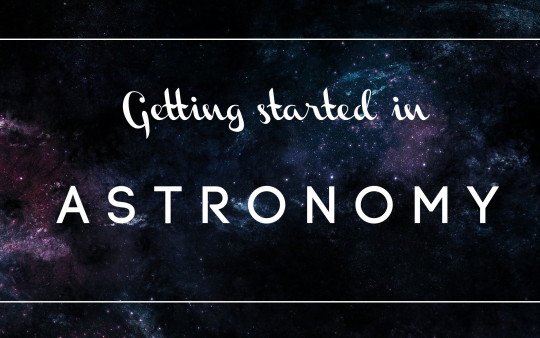
Learning astronomy
Podcasts
astronomy cast : hundreds of podcasts! Great for beginners and general facts, but keep in mind that those are from 2006, so some technical things may no longer be relevant
Videos
crash course : amazing synthetic videos about astronomy, those are my personal favorites
Websites
astronomy basics : all you need to know if you’re a great beginner!
Free online courses
probably the most complete one I’ve ever seen
khan academy astronomy courses are quality af
Books
list of books about what to see and how with a telescope
another list of books about astronomy in general
telescope books
astrophotography
Stargazing
Sky maps
sky maps per month
very good starwheels aka planispheres
How to observe
basic skills
10 steps to begin
the perfect all-in-one stargazing guide: I can’t recommend this highly enough!!
Telescopes and things
telescopes
telescope reviews : aka what to chose for what you want to see
everything about telescopes : super useful when you start using one!!
Astrophotography
Starting
everything you need to know depending on what equipment you have!!
all you need version 2!
General
catching the light
hundreds of tips
Apps and websites
For computers
stellarium
googlesky
astroplanner: plan your observation!
winstars: 3D planet/stargazing!
planetarium
+ full list of softwares and websites
For mobiles
starwalk2 (android version): alright guys, this one is my absolute favorite at all times. Like, really. Have you ever wished you could point a device at the sky and know exactly what’s above you? And have a description of those things? Even in the middle of the day?? Well, now you can yaaay! :D
Astronomy News
astronomy.com
universetoday
skyandtelescope
space.com aka my personal favorite
astronomynow
sci-news
++bonus !
All the random facts
here +other links: x x x x
Backgrounds
hubble site gallery
ESA/Hubble gallery
HD wallpapers
NASA gallery
Even more resources
friendsoftheobservatory
NASA
European Space Agency
ISS Live
I really hoped it helped! Thank you very much for reading!
Zoya
1K notes
·
View notes
Text
I LOVE Excel! I took an Excel class during University and I’ve never stopped using or learning about it since. During my summer internship, I would literally use Excel functions and macros for hours every single day. Even if you don’t want to be an Excel fanatic, learning a few basic functions will make your life easier (and even impress a few managers along the way!).
I’ve outlined below some of the most useful Excel functions to learn. Some of these functions are very basic but can make a huge difference. These functions save time, automate procedures, and make your life easier! And if you need some help on how to learn them, I’ve listed some helpful resources to get you started. With all of us social distancing at home, now is as good of a time as any to add a skill to your resume.
Excel Functions to Know:
SUM: returns sum of cells selected
SUMPRODUCT: multiplies ranges or arrays together and returns the sum of product
IF: return one value for a TRUE result and another for a FALSE result
SUMIF: returns the sum of cells if the cell meets a single condition
AVERAGEIF: computes the average of the numbers in a range that meets a certain criteria
VLOOKUP: lookup and retrieve data from a specific column in a table can be exact or approximate match
LEFT: returns a given number of characters from the left side of text string
RIGHT: returns a given number of characters from the right side of text string
CONCATENATE: joins the text of cells together and returns the joined text in one cell
LENGTH: returns the given number of characters in a text
Resources:
Excel Jet: Very useful as a type of Excel dictionary to look up syntax and specific formulas you don’t know
Excel Easy: almost like on online textbook for Excel (great resource for those who have no knowledge of Excel at all!)
Udemy: paid excel course with lots of videos, assignments, and downloadable resources
Coursera: self-paced learning option, quizzes and assignments, and a course certificate
Excel Youtube Course by Technology for Teachers and Students
Datacamp (7/12/20 edit thanks anon for the suggestion!)
Prologue to my Excel series
I’ll also be posting Excel tips, tricks, function explanations, and some basic Excel tutorials so if you’d like to see more appear on your dash in the future, follow my blog and look for my Excel series.
7K notes
·
View notes
Text
My supervisor, reviewing my written research design: This part seems a bit awkward…?
Me: I am the one who wrote it. What did you expect.
573 notes
·
View notes
Text
Every exchange between me and my advisor

362 notes
·
View notes
Text
Yipyip if you're out there WE BELIEVE IN YOU
3 notes
·
View notes
Text
when i get asked probing questions about my research
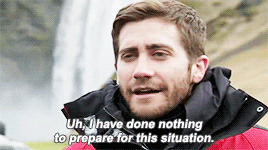
295 notes
·
View notes
Photo

During the past 3 years at university, I’ve had to read a bunch of articles, a lot of which used some… creative… words, that I, in my ESL-ness, had some trouble making sense of. So here are the best of the worst weird English words I’ve run into in academic articles.
abstruse (adj) - difficult to understand; obscure (you don’t say)
apocrypha (n) - biblical or related writings not forming part of the accepted canon of Scripture; writings or reports not considered genuine
axiomatic (adj) - self-evident (clearly not)
biunivocal (adj) - beneficial to both sides (bi+uni????? why)
cogency (n) - the quality of being clear, logical, and convincing; lucidity
cogitation (n) - the action of thinking deeply about something; contemplation
delphic (adj) - deliberately obscure or ambiguous (again, why would u)
doldrum (n) - a state or period of stagnation or depression
dyadic (adj) - interactions between 2 people, the smallest possible group
effervescence (n) - vivacity; enthusiasm
elegiac (adj) - relating to or characteristic of an elegy (gotta love when the def of a word requires you to look up another word)
endogeneity (n) - a fancy word for a simple problem (WHY)
enfeoff (v) - (under the feudal system) give (someone) freehold property or land in exchange for their pledged service
eschatological (adj) - relating to death, judgement, and the final destiny of the soul and of humankind
explicate (v) - analyse and develop (an idea or principle) in detail
expound (v) - present and explain (a theory or idea) in detail (so just write… ‘explain’………..)
homeomorphic (adj) - apparently a math/physics term. i have only been reading humanities stuff. i hate this
iconoclastic (adj) - criticizing or attacking cherished beliefs or institutions
impingement (n?) - to make an impression; have an effect or impact
intersubjectivity (adj) - shared by more than one conscious mind
mellifluously (adv) - pleasingly smooth and musical to hear
mendacious (adj) - not telling the truth; lying (mm oh my god stop fuckin being mendacious)
moratorium (n) - a temporary prohibition of an activity
occlude (v) - stop, close up, or obstruct (an opening, orifice, or passage)
octogenarian (n) - a person who is between 80 and 89 years old (so specific)
paucity (adj) - the presence of something in only small or insufficient quantities or amounts
pejorative (adj) - expressing contempt or disapproval
perennial (adj) - enduring or continually recurring
putative (adj) - generally considered or reputed to be (just use SUPPOSED JFC)
ratiocination (n) - the process of exact thinking; a reasoned train of thought
solipsism (n) - the view or theory that the self is all that can be known to exist
uxorilocal (adj) - located at or centered around the residence of the wife’s family or people
quiddity (n) - a distinctive feature; a peculiarity
veridic (adj) - corresponding to facts; not illusory
In conclusion: most published academics care less about their stuff being accessible than sounding Very Smart
2K notes
·
View notes
Text
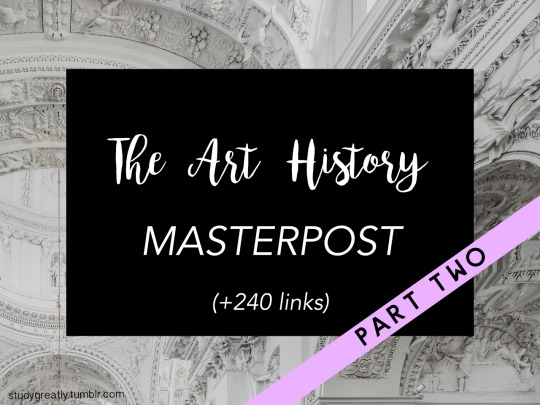
Here is the second part of the art history masterpost (part 1 here)
Venetian and Northern Renaissance (1430–1550)
general (x) (x) (x) (x) (x) (x) (x)
know your history (x) (x) (x) (x) (x)
artists recommendations
Bellini (x) (x) (x)
Titian (x) (x) (x) (x)
Dürer (x) (x) (x) (x)
Pieter Bruegel the Elder (x) (x) (x)
Bosch, The Garden of Earthly Delights (x) (x) (x)
Jan Van Eyck, Arnolfini Portrait (x) (x) (x)
Vermeer (x) (x) (x) (x)
Canaletto (x) (x) (x)
book recs (x) (x) (x)
video recs (x) (x) (x)
Baroque (1600–1750)
general (x) (x) (x) (x)
know your history (x) (x)
artists recommendations
Rubens (x) (x) (x)
Rembrandt (x) (x) (x)
Caravaggio (x) (x)
book recs (x) (x)
video recs (x)
Neoclassical (1750–1850)
general (x) (x) (x)
know your history (x) (x)
artists recs
David (x) (x) (x)
Ingres (x) (x) (x)
Greuze (x) (x) (x)
book recs (x) (x)
video recs (x)
Romanticism (1780–1850)
general (x) (x) (x) (x)
know your history (x) (x)
artists recommendations
Friedrich (x) (x)
Gericaux (x) (x)
Delacroix (x) (x)
Turner (x) (x) (x)
book recs (x)
video recs (x)
Realism (1848–1900)
general (x) (x) (x)
know your history (x) (x) (x)
artists recs
Corot (x) (x)
Courbet (x) (x)
Millet (x) (x)
Daumier (x) (x)
book recs (x) (x)
video recs (x)
Impressionism (1865–1885)
general (x) (x) (x)
know your history (x) (x) (x)
artists recs
Monet (x) (x)
Manet (x) (x)
Cassat (x) (x)
Degas (x) (x)
book recs (x) (x)
video recs (x)
Post-Impressionism (1885–1910)
general (x) (x) (x) (x) (x)
know your history (x) (x) (x)
artists recs
Van Gogh (x) (x) (x) (x)
Gauguin (x) (x) (x)
Cézanne (x) (x) (x)
book recs (x) (x)
video recs (x)
Fauvism and Expressionism (1900–1935)
general (x) (x) (x) (x) (x)
know your history (x) (x) (x) (x)
artists recs
Matisse (x) (x) (x)
Kirchner (x) (x)
Kandinsky (x) (x)
book recommendations (x)
video recs (x) (x)
Cubism, Futurism, Constructivism
general (x) (x) (x) (x) (x) (x)
know your history (x) (x) (x) (x)
artists recs
Picasso (x) (x)
Braque (x) (x)
Boccioni (x) (x)
Malevich (x) (x) (x) (x)
video recs (x)
book recommendations (x)
Dada and Surrealism (1917–1950)
general (x) (x) (x) (x)
know your history (x) (x)
artists recs
Duchamp (x) (x)
Dali (x) (x)
Magritte (x) (x)
Kahlo (x) (x)
book recs (x)
video recs (x) (x)
Pop Art (1960s) and Postmodernism (1970s - now)
general (x) (x)
know your history (x) (x) (x)
artists recs
Warhol (x) (x)
Lichtenstein (x)
Richter (x)
Sherman (x)
Book recs (x) (x)
Video recs (x)
“I want to do further research, what websites do you recommend?”
identifythisart.com // artyfactory.com // ancient.eu // theartstory.org // artcyclopedia.com // wikiart.org // visual-arts-cork.com
“I’d rather follow a proper course than browse through loads of websites, where do I find that?”
khanacademy (this is honestly the best website ever)
study.com
academicearth
gbaacademy
“Where can I view or download works of art?”
Download thousands of works of art (now public domain)
Modern art books online
British Library
Metmuseum collection
“Which museums frequently release new material to learn from?”
Metmuseum essays : a personal favorite, short but super informative with subjects being either super general or super specific
Guggenheim publications : also a great source
British museum publications : a bit harder to browse through, but it gives great ideas to do your own research!
That’s it for that long masterpost series, I hope it was helpful!
Zoya
449 notes
·
View notes
Photo

I loved this book. I also hated it. Tartt is clearly an extraordinary writer. Her ability to utilize the five senses to transport you to her world of dark academia is astounding. When she describes a simple field, the location almost becomes ethereal. Further, her ability to compose lengthy triades about the state of humanity leaves readers with much to consider about their life and current choices. If it were only for her writing, I would give this book five stars. However, the plot and characters were a difficult obstacle to overcome. She wrote the characters in a believable manner, thus the characters were believably painful to follow. Their moral compasses reside in a shallow ditch and the frivolous nature of their spending habits is infuriating. Additionally, the plot felt like a reach at times; the reactions and choices characters made required a bit more suspension of disbelief that I would've liked for this story. If half stars were available, I'd give The Secret History 3.5/5 stars. https://www.instagram.com/p/CCmSf4zFCZm/?igshid=bf05gvwph00f
1 note
·
View note
Photo

Walt Whitman, ‘Song of Myself’, Leaves of Grass
[Text ID: “Do I contradict myself?
Very well then….I contradict myself;
I am large….I contain multitudes.”]
18K notes
·
View notes